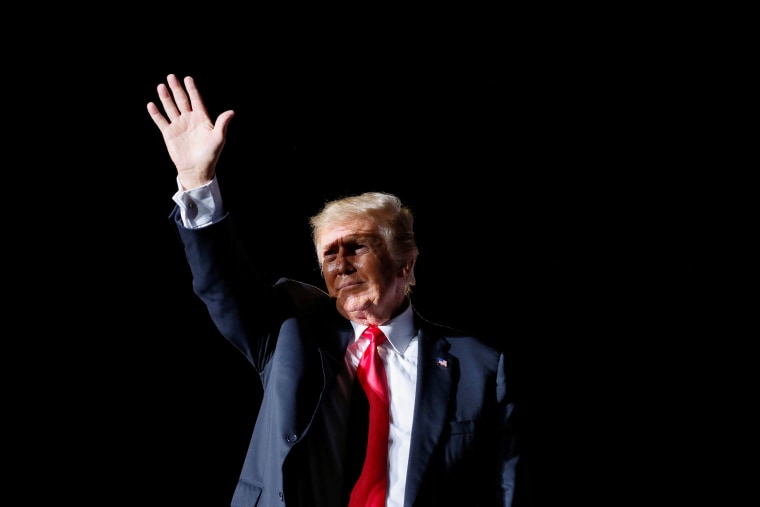After the bipartisan House committee examining the Jan. 6 attack sought materials from the White House about Donald Trump's tenure, the former president did exactly what everyone expected him to do: Trump asked the White House to shield the documents.
Traditionally, sitting presidents honor such requests, but not this time: President Joe Biden and his team recently announced that the insurrectionist violence creates "unique and extraordinary circumstances." As such, the Democratic White House has given the National Archives the green light to release materials — phone records, visitor logs, internal communications, etc. — to the congressional panel investigating the attack.
Yesterday, as NBC News reported, Trump's lawyers filed suit in the hopes of keeping the documents hidden.
Former President Donald Trump has sued to block any handover of documents sought from the National Archives by the congressional committee investigating the Jan. 6 riot. The suit names both the committee and the National Archives as defendants. It says the committee's subpoena is invalid because the committee has no power of investigation. And it says the materials should be protected by executive privilege.
As we've discussed, when the House select committee first made this request to the National Archives several weeks ago, officials began pulling together the relevant materials and then presenting them to both Trump's lawyers and the Biden White House for review. The Archives soon made clear that without a court order barring their release, Congress would receive the documents.
The Republican's new lawsuit is intended to get a court order that would prohibit the National Archives from cooperating with the committee's investigation.
Trump and his team also released a "memo" explaining the lawsuit, which accused House Speaker Nancy Pelosi of launching a "Communist-style attempt to silence and destroy America First patriots," whined about "the media," and insisted that Democrats are "mismanaging" the Covid-19 crisis, "defunding the police," and "destroying the economy" by trying to get more Americans vaccinated.
All of which is to say, the "memo" served as a reminder of the kind of seriousness with which the former president is approaching the issue.
The litigation is not expected to succeed, though its existence is nevertheless remarkable. It's one thing for Trump to try to put a twisted spin on the historical record; it's something else for Trump to try to prevent officials from putting together a historical record.
The political risk, of course, is that the former president will look like a man who has something to hide. Evidently, Trump is comfortable with that: He appears far more afraid of lawmakers obtaining these materials.
For their part, the committee's chair, Democrat Bennie Thompson, and its vice chair, Republican Liz Cheney, issued a written statement late yesterday that read in part, "The former President's clear objective is to stop the Select Committee from getting to the facts about January 6th and his lawsuit is nothing more than an attempt to delay and obstruct our probe.... The Select Committee's authority to seek these records is clear. We'll fight the former President's attempt to obstruct our investigation while we continue to push ahead successfully with our probe on a number of other fronts."
Soon after, the same Jan. 6 committee released a report recommending holding Steve Bannon in criminal contempt for having ignored a subpoena. The panel is scheduled to vote today to approve the report, which would clear the way for a contempt vote in the full U.S. House.
Assuming the measure passes, the matter would be referred to the U.S. attorney for the District of Columbia for possible criminal prosecution.
Watch this space.

